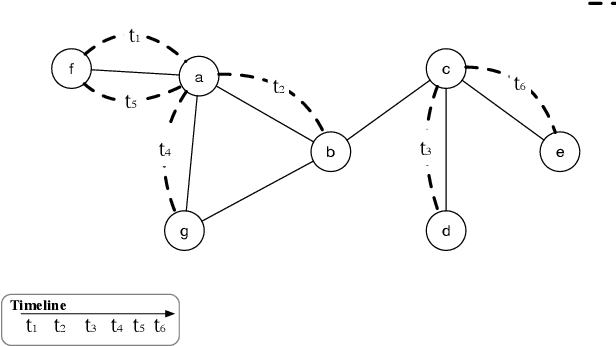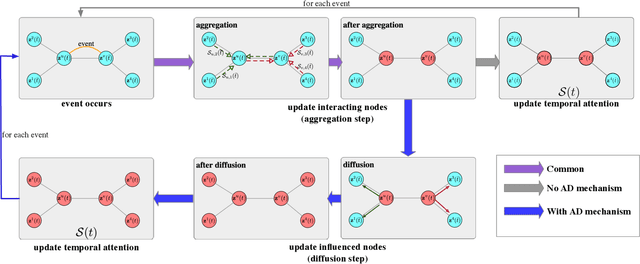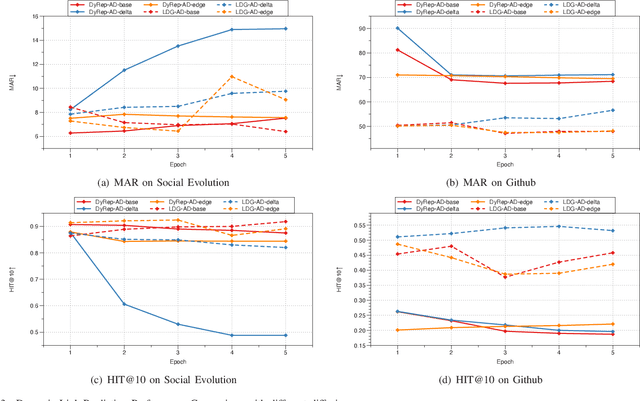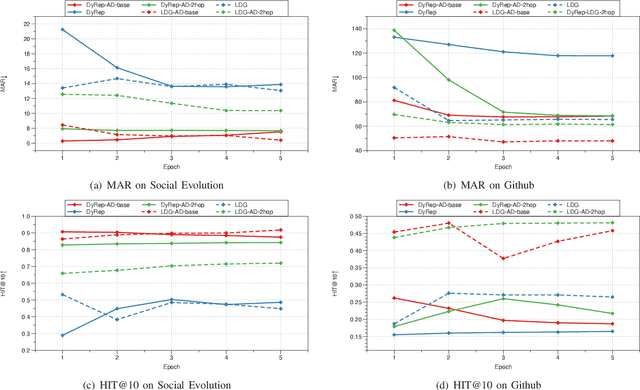Learning Representation over Dynamic Graph using Aggregation-Diffusion Mechanism
Paper and Code
Jun 03, 2021



Representation learning on graphs that evolve has recently received significant attention due to its wide application scenarios, such as bioinformatics, knowledge graphs, and social networks. The propagation of information in graphs is important in learning dynamic graph representations, and most of the existing methods achieve this by aggregation. However, relying only on aggregation to propagate information in dynamic graphs can result in delays in information propagation and thus affect the performance of the method. To alleviate this problem, we propose an aggregation-diffusion (AD) mechanism that actively propagates information to its neighbor by diffusion after the node updates its embedding through the aggregation mechanism. In experiments on two real-world datasets in the dynamic link prediction task, the AD mechanism outperforms the baseline models that only use aggregation to propagate information. We further conduct extensive experiments to discuss the influence of different factors in the AD mechanism.
 Add to Chrome
Add to Chrome Add to Firefox
Add to Firefox Add to Edge
Add to Edge